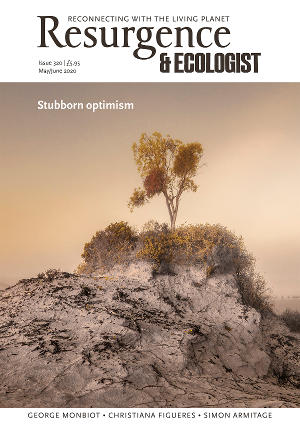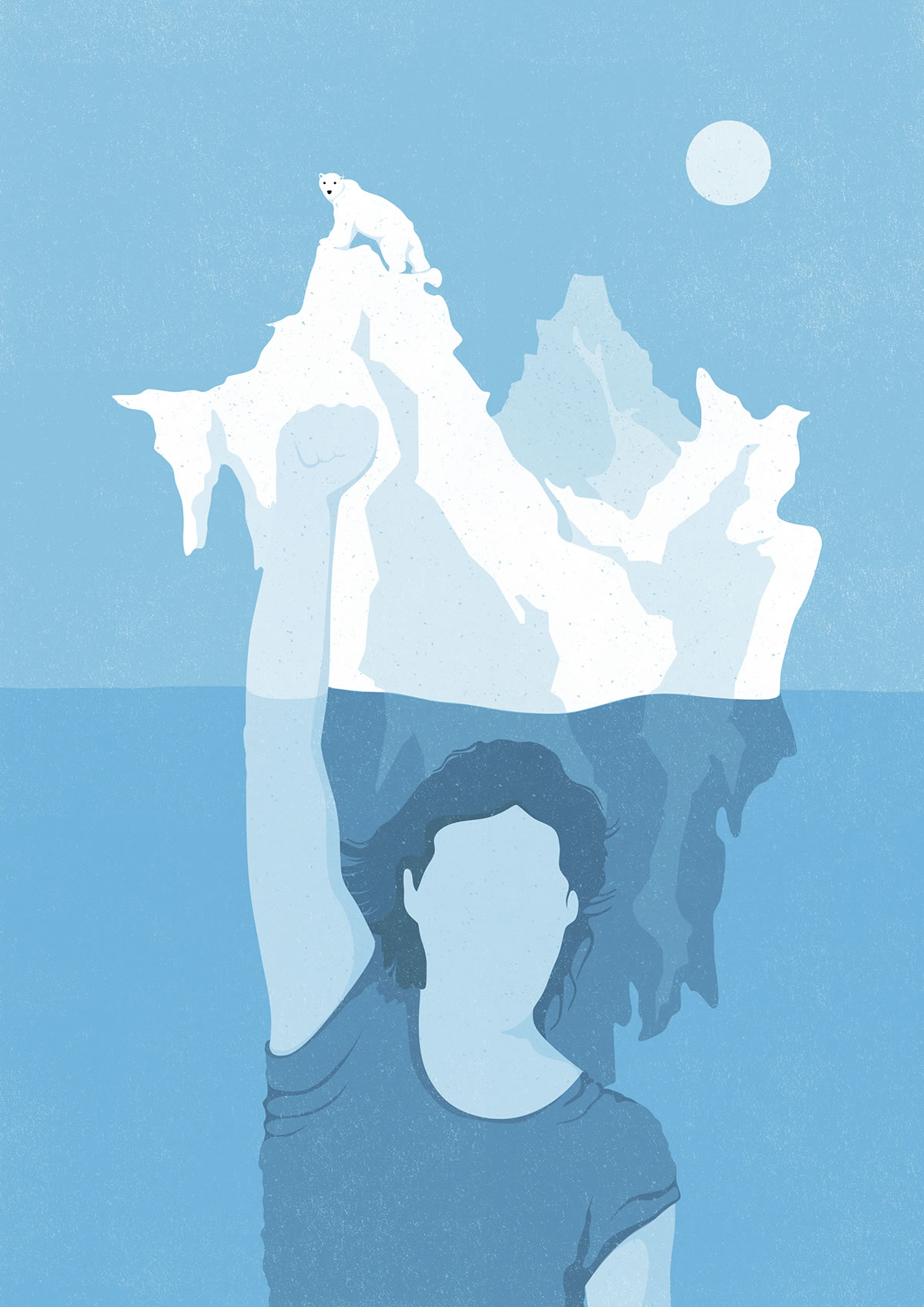It makes me irate! It makes me extremely sad and outraged,” Christiana Figueres exclaims, as we discuss the Australian bushfires that have dominated global headlines for weeks. “You cannot see the photos of parents taking their children into the ocean to protect them from the fire without being outraged; you cannot see the headlines of 1 billion animals burnt to death without being outraged. It is just inconceivable,” she says.
Figueres’ emotion is audible over the phone line from Costa Rica, where she now lives. But despite these feelings, she refuses to remain in a state of anger and grief. “If we stay outraged and feel helpless in the face of it all, then we will not be able to bring in any of the changes that we so desperately need,” she says.
This is the theme of her new book, The Future We Choose, co-authored with Tom Rivett-Carnac, her senior adviser at the UNFCCC (United Nations Framework Convention on Climate Change) and joint founder of Global Optimism, an organisation devoted to catalysing a transformation from pessimism to optimism in order to bring about social and environmental change (see Keynotes, page 22).
The Future We Choose outlines two possible futures for human life on Earth in 2050. One is apocalyptic, a world where coral reefs have almost disappeared, sea levels have risen more than 20cm, and millions of people have been forced to migrate from uninhabitable areas. The second is a world where emissions have halved every decade since 2020, cities have been transformed by mass tree-planting, and high-speed rail has replaced domestic flights while creating jobs.
The book goes on to explain Figueres’ central belief that the power to change a situation lies in first transforming a mindset: “Though readers may conclude that the apocalyptic vision cannot be avoided, it would be irrational to give up on the possibility of the alternative utopian future becoming reality. Stubborn optimism needs to motivate you daily; you always need to bear in mind why you feel the future is worth fighting for. That essential ‘why’ should be the driving force of all efforts to combat climate change, no matter what.”
This journey began with Figueres herself. The book describes her first press conference after she was appointed to the role of executive director of the UNFCCC – the body responsible for the UN’s climate change treaty – in the wake of the disastrous Copenhagen climate talks in 2009. Asked if a global agreement on climate change would ever be possible, she replied: “Not in my lifetime.” But she realised that though this attitude was widespread among UN officials, government delegates and activists, it was exactly the problem. She decided she could not succumb to this despair and by extension let the political process reflect such desperation.
“When Christiana walked out of the press conference that day, she knew her primary task: to be a beacon of possibility that would allow everyone to find a way to a solution together. How it would happen she did not know, but she knew with clarity that she had no other option,” the book states.
Figueres tells me she no longer fears being outraged, sad or worried, but has learnt how to use these feelings to move forward. “I honour those feelings and I gather that energy and transform it into something that is constructive and leads to solutions,” she says.
Key to this skill is her meditation practice. Figueres began to study Buddhism in 2013, following the teachings of Thich Nhat Hanh, a Vietnamese Zen master. Though the motivation came primarily from personal events in her life, Figueres acknowledges that Buddhism helped her enormously to gain clarity for her work at the UNFCCC and the years of meetings and negotiations leading up to the Paris climate talks in 2015. In particular, Buddhism taught her the wisdom to ask questions and listen, rather than preach. “To be able to stand as witness and truly internalise for yourself the reality of another person, I think was very helpful in the approach that we took to the Paris agreement,” she says.
Another teaching Figueres found relevant to international climate negotiations is that everyone has a variety of intentions to make a difference, but the activation of these is “a very specific choice”. She explains: “We have all those seeds in our personal soil, and we can choose to water some seeds and not others. Inasmuch as you water the seeds of collaboration, the seeds of solidarity, the seeds of long-term thinking, they will become the beacons of both decisions and actions.” She adds: “It was very helpful to understand that in order to align themselves with collaboration or solidarity, people needed to take responsibility for growing and nurturing those sentiments within themselves.”
The success of that strategy spoke for itself when the Paris talks ended with 197 countries agreeing to bring forward their own national climate change plans and aim to reduce emissions in line with the science of keeping global temperatures to within 2 ºC of pre-industrial levels, while aiming for 1.5 ºC, a demand that came from activists and small island states, and that not many believed at the outset had much chance of making it into the final text.
Figueres believes that everyone should be part of the collective action necessary to limit the effects of the climate crisis, which also means being allowed to take part in the climate change negotiations. This includes the big energy corporations, whose presence some blame for lack of progress, in particular at the most recent round of talks, in Madrid in December 2019. “Blaming and shaming is not helpful,” Figueres says. “I believe in helping everyone put their best foot forward – in particular those industries like oil and gas that have had a huge impact in causing climate change but at the same time could have a huge influence in addressing climate change. So I don’t believe in demonising any industry or country, or any sector. Leaders of big corporations or politicians can change their minds on climate change any time, as long as they consciously decide to do so.”
With this in mind, it will be interesting to see what happens in Australia, a country where, Figueres says, “the political leadership has been dragging its feet on climate policy since entering into power. The bushfires have ravaged the country and caused 5% of national GDP loss in just one fire season. It remains to be seen if this will impact the government’s position in terms of its responsibility for climate change.”
Her book encourages readers to take responsibility for their own emissions, targeting 10 actions, including seeing themselves as citizens rather than consumers, becoming more active in politics, planting trees and boycotting products that lead to deforestation, cutting down on meat, and moving their investments and pensions away from fossil fuels.
“It is important to consider the context of individual decisions before making them,” she stresses. “For example, when living in London I was able to rely on public transport, but now I live back in my home country of Costa Rica I have to use a car. However, the car is electric, which is emissions-free in Costa Rica, where 100% of electricity is generated from renewable sources. In contrast, using public transport in Costa Rica is highly polluting, as the country’s buses run on imported fossil fuels.
“There’s no such thing as a cookie-cutter approach to reducing emissions – you have to understand the context that you’re living in and figure out what you can do to reduce your footprint in that context,” she adds.
Retaining her trademark optimism, Figueres believes that the next round of UN climate talks, to be hosted by the UK in Glasgow in November 2020, can be a success, despite stalemate at the Madrid talks on several parts of the ‘rulebook’ of the Paris Agreement, including carbon pricing. “The market rules have not been agreed, and we don’t know if they will be at COP26. It is an important remaining piece of the rulebook, and there’s no doubt that a carbon price would accelerate decarbonisation,” she says. “But even without that, there is much that can be done. The most important thing about COP26 is what is happening in the real-world economy. We see much investment and capital flowing from high-carbon assets to lower-carbon assets because the markets have realised that there is high risk in high carbon, and much lower risk in lower carbon. We don’t need to drown in a glass of water.”








